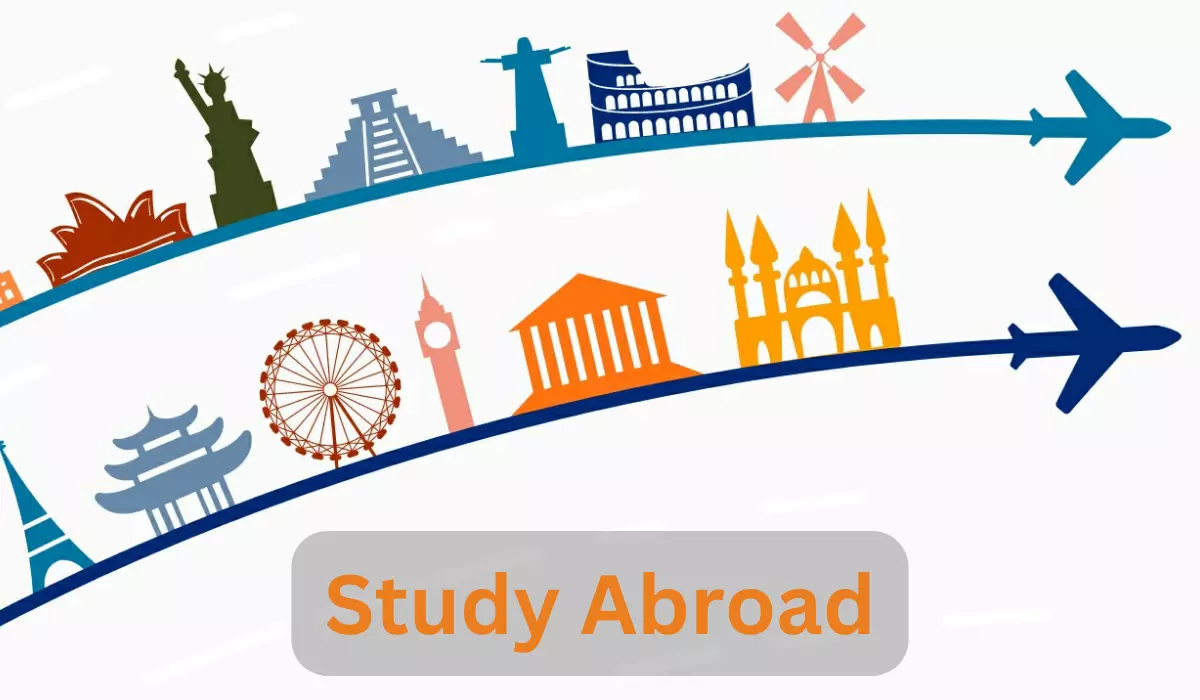Studying abroad is an adventure of a lifetime, offering unparalleled educational and cultural experiences. However, the cost of studying in a foreign country can be a significant concern for many students and their families. With the right strategies and knowledge, it is possible to make this dream a reality without breaking the bank. This blog aims to provide practical tips and insights on how to save money while pursuing education overseas.
Embrace the challenge of studying abroad with confidence, knowing that with the right approach, it’s an investment that’s both affordable and immensely rewarding. Let’s embark on this journey together, learning how to navigate the financial aspects of studying abroad with ease and efficiency.
I. Financial Planning Before Going Abroad
Embarking on an educational journey abroad requires meticulous financial planning. It’s essential to assess your financial situation and create a realistic budget that covers tuition, living expenses, travel, and unforeseen costs.
Start by researching the cost of living in your destination country and consider the length of your stay.
Creating a savings plan months or even years in advance can significantly ease the financial burden. Investigate the various costs associated with studying abroad, such as visa fees, health insurance, and airfare. It’s wise to have a financial buffer for emergencies.
Additionally, familiarize yourself with the banking system of the destination country to manage your finances effectively once you’re there.
II. Reducing Tuition Costs
One of the major expenses while studying abroad is tuition fees. However, there are several ways to reduce these costs. Firstly, consider enrolling in universities that offer lower tuition fees or countries with affordable education systems. Many European countries, for example, offer low-cost or even free tuition to international students.
Another approach is to seek out exchange programs offered by your home institution. These programs often allow you to pay your regular tuition fees while studying abroad.
Also, look for universities abroad that offer tuition discounts, waivers, or payment plans to international students, making education more accessible.
III. Trimming Living Expenses
Living expenses can significantly add up while studying abroad. To manage this, opt for affordable housing options like shared apartments, university dorms, or homestays. These choices are not only economical but also provide opportunities for cultural immersion.
Be mindful of daily expenses such as food, transportation, and entertainment. Cooking at home, using public transportation, and enjoying free local activities can drastically cut down costs. Always look for student discounts, which are widely available in areas like transportation, museums, and cinemas.
IV. Earning While Studying Abroad
Working part-time while studying abroad can be a practical way to offset living expenses. Many student visas permit a certain number of work hours per week. Look for on-campus jobs, which are often tailored to students’ schedules, or part-time positions in local businesses.
Freelancing or remote work can also be a viable option, especially if you have skills in areas like writing, graphic design, or programming. These jobs offer flexibility, allowing you to balance work and study effectively. Remember to adhere to the work regulations of your host country to avoid any legal issues.
V. Traveling Smartly
Traveling while studying abroad doesn’t have to be expensive. By planning ahead and being strategic, you can explore new places without breaking the bank.
Opt for budget airlines, trains, or buses for intercity or international travel. Booking tickets well in advance and traveling during off-peak times can result in significant savings.
Explore local and regional travel options. Often, nearby destinations offer rich cultural experiences at a fraction of the cost. Don’t overlook the benefits of walking or cycling for short distances – it’s healthy, environmentally friendly, and free.
VI. Managing Currency Exchange and Banking
Effective management of currency exchange and banking is crucial while studying abroad. Be aware of exchange rates and transaction fees when converting money. It’s often more economical to exchange a larger sum of money less frequently than making frequent small transactions.
Consider opening a local bank account, especially if you’re staying for a longer period. This can reduce international transaction fees and make everyday financial transactions more convenient. Also, inform your home bank of your travel plans to avoid any issues with your existing accounts.
VII. Scholarships and Grants for Study Abroad
Scholarships and grants are excellent resources to finance your study abroad experience. Many universities, governments, and private organizations offer financial aid specifically for international students. Start by checking with your university’s study abroad office and researching online databases for study abroad scholarships.
Apply for as many scholarships and grants as you are eligible for, and pay close attention to application deadlines and requirements. Some scholarships cover tuition, while others may provide stipends for living expenses or travel.
VIII. Student Experiences and Success Stories
Hearing from students who have successfully studied abroad can be both inspiring and informative. These stories often include practical advice on budgeting, adapting to a new culture, and balancing work and study. Many students find innovative ways to save money, from finding part-time work to securing scholarships.
Student blogs, university websites, and study abroad forums are great platforms to find these stories. Engaging with these communities can also provide support and tips specific to your study destination.
IX. Cultural and Educational Benefits
Studying abroad is not just about academic growth; it’s also a unique cultural experience. Immersing yourself in a new culture broadens your perspectives and enhances personal development. You gain valuable life skills such as adaptability, communication, and problem-solving.
These experiences contribute significantly to your professional and personal growth. Employers highly value international exposure, as it indicates adaptability and a global mindset. The cultural understanding and network you build abroad can be invaluable in your future career.
X. Conclusion
Studying abroad is an enriching experience, both educationally and culturally. With careful planning and smart strategies, the financial aspect of it can be effectively managed. By exploring options for reducing tuition and living expenses, earning while studying, and availing scholarships, you can make your study abroad dream a reality without undue financial strain.
Remember, the key to a successful and affordable study abroad experience lies in early planning, thorough research, and a willingness to adapt. Embrace the journey, and the investment you make in this experience will yield lifelong benefits.
Source:
Education, K. O. (2022, December 19). 10 Tips to Save Money While Studying Abroad. https://www.studies-overseas.com/blogs/10-tips-to-save-money-while-studying-abroad.
Ways To Save Money When Studying Abroad | Student.com Blog. (2019, September 24). Student.com Blog. https://www.student.com/articles/10-ways-to-save-money-when-studying-abroad











